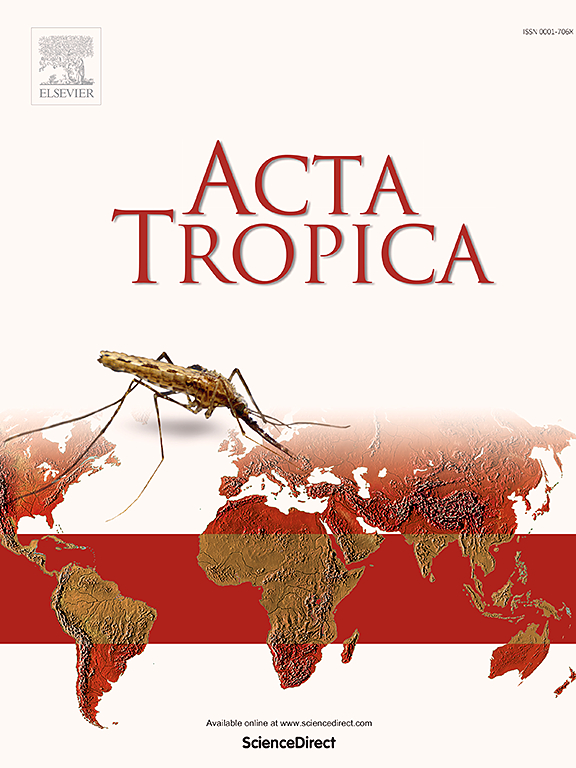Thinking outside the box: Citizen science to monitor phlebotomine sand flies in Spain
IF 2.1
3区 医学
Q2 PARASITOLOGY
引用次数: 0
Abstract
The Flebocollect project is a citizen science (CS) initiative in which a diverse group of participants, mainly high-school students, were requested to monitor sand flies (fm. Psychodidae; sfm. Phlebotominae), vectors of Leishmania parasites and Phlebovirus. The project generated entomological data that was then used to prepare an online free-access sand fly monitoring map providing information about the distribution areas of this vector group in Spain. This initiative contributes to our understanding of sand fly dynamics and thus of the risk of disease transmission, while promoting education and public health engagement in line with Sustainable Development Goals (SDGs). We were also able to confirm the potential of CS for advancing research and strengthening sustainable vector surveillance, thus meeting the demands of The Global Vector Control Response 2017–2030 program. Didactic impact was analyzed through a test distributed to the participants before and after the educational program (pre- and post-test respectively) to assess the potential of CS as a learning tool and to promote a better attitude towards science. The project's success in Spain demonstrates that similar citizen science initiatives could be replicated elsewhere, provided they receive funding through dedicated scientific outreach budgets and are designed with long-term sustainability in mind.

跳出框框思考:公民科学监测西班牙白血沙蝇
Flebocollect项目是一项公民科学(CS)倡议,在该倡议中,不同群体的参与者(主要是高中生)被要求监测沙蝇(fm。毛蠓科;sfm。白蛉科),利什曼原虫和白蛉病毒的载体。该项目产生了昆虫学数据,然后用于编制在线免费获取的沙蝇监测地图,提供有关该病媒群体在西班牙分布区域的信息。这一举措有助于我们了解沙蝇动态,从而了解疾病传播风险,同时根据可持续发展目标促进教育和公共卫生参与。我们还确认了CS在推进研究和加强可持续病媒监测方面的潜力,从而满足2017-2030年全球病媒控制应对规划的需求。通过在教育计划前后(分别为前测试和后测试)分发给参与者的测试来分析教学影响,以评估CS作为学习工具的潜力,并促进对科学的更好态度。该项目在西班牙的成功表明,类似的公民科学计划可以在其他地方复制,只要它们通过专门的科学推广预算获得资助,并且在设计时考虑到长期的可持续性。
本文章由计算机程序翻译,如有差异,请以英文原文为准。
求助全文
约1分钟内获得全文
求助全文
来源期刊

Acta tropica
医学-寄生虫学
CiteScore
5.40
自引率
11.10%
发文量
383
审稿时长
37 days
期刊介绍:
Acta Tropica, is an international journal on infectious diseases that covers public health sciences and biomedical research with particular emphasis on topics relevant to human and animal health in the tropics and the subtropics.
 求助内容:
求助内容: 应助结果提醒方式:
应助结果提醒方式:


